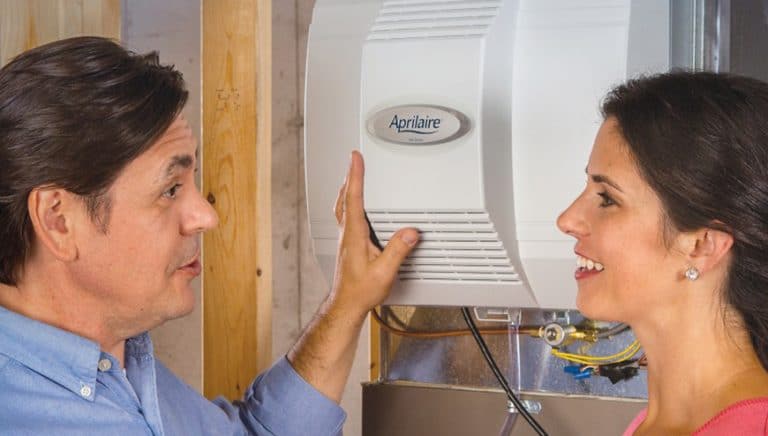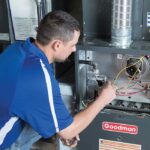Like most people, you probably don’t think about a central air humidifier until the humidity goes too high or too low. And if you’re lucky, the only time you have to adjust the humidity in your home is when the weather changes outside. But what if I told you that having the proper humidity level in your home was important for more than just your comfort?
In this blog post, we will discuss the benefits of using a central air humidifier and how to choose the right one for your needs.
What Is a Central Air Humidifier?
Investing in a central air humidifier can bid farewell to itchy eyes, flyaway hair, dry skin, and irritated throats and sinuses produced by dry air. The static electricity shocks you feel while walking across your carpet will be a thing of the past. All of these irritations may be minimized or removed.
A humidifier is a device that uses water vapour to moisten the air. This equipment is frequently available in portable, desktop, or console variants that may be used to humidify one room or space. A central humidifier, on the other hand, is plugged into your home’s HVAC equipment and then linked to the plumbing.
Instead of working on a single point of use (bathroom, kitchen, or bedroom), these fixed systems humidify the whole home simultaneously, making them exceptionally effective in terms of conservation, efficiency, and cost savings.
Advantages of Central Air Humidifier
When selecting a humidifier, you’ll want to consider the size of your home and the amount of humidity you wish to add to the air.
Many benefits come along with using a central humidifier in your house, which includes:
Eliminating Static Electricity
Dry air is one of the leading causes of static electricity shocks. Adding moisture to the air can eliminate static electricity and the shocks that come with it.
Improving Your Sinuses
Dry air may cause your sinuses to become dry, irritated, and inflamed. It can lead to sinus headaches, congestion, and a general feeling of discomfort.
Energy Efficient
Portable humidifiers need to be filled with water regularly and use a lot of energy to operate. A central humidifier is connected to your home’s plumbing, so you’ll never have to worry about filling it up. Additionally, it won’t use as much energy as a portable humidifier because it’s connected to your HVAC system.
Lowering Your Heating Bills
Adding moisture to the air will make it feel warmer, so you won’t have to crank up the heat as much in the winter. It can lead to lower heating bills and increased energy efficiency.
Reducing Allergies and Asthma Symptoms
Dry air can exacerbate allergies and asthma symptoms. Adding moisture to the air can reduce these symptoms and make your home more comfortable for everyone.
Drawbacks of Central Air Humidifier
While there are many advantages to using a central humidifier, there are also some drawbacks that you should be aware of.
Quite Expensive
Central humidifiers are more expensive than portable humidifiers and require professional installation. Additionally, if you have hard water, you’ll need to replace the filter regularly to prevent it from clogging the humidifier.
Can Cause Mold and Mildew
If you live in an area with high humidity, you’ll need to be careful not to over-humidify your home, as this can lead to mould and mildew growth. It’s essential to monitor your home’s humidity levels and ensure they stay between 30-50%.
Conclusion
A central air humidifier is an excellent option if you’re looking for a way to improve your indoor air quality. Not only will it make your home more comfortable, but it can also save you money on your heating bills. Just be sure to monitor the humidity levels in your home to prevent mould and mildew growth.
If you need more information about central air humidifiers, you can check out https://fieldedge.com/blog/central-air-humidifier/. Research the different types of humidifiers and their features to help you decide which one is best for your home.










